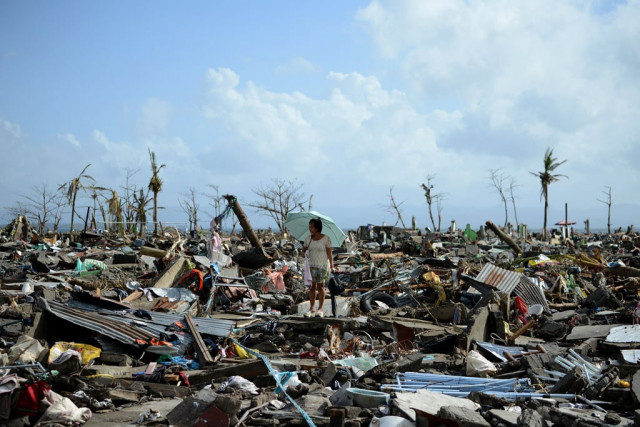Philippines tragedy
The Philippine government is still in shock and cannot be blamed for any delay in the delivery of assistance — yet.

A surivor walks among the debris of houses destroyed by Super Typhoon Haiyan in Tacloban in the eastern Philippine island of Leyte on November 11, 2013. PHOTO: AFP
International aid is mobilising and once again there will be a vast effort to bring relief to a stricken people. Lessons have been learned from the tsunami of December 2004, particularly the necessity for effective coordination between agencies and the need to avoid duplication of effort. The Philippine government is still in shock and cannot be blamed for any delay in the delivery of assistance — yet. The quality of life for survivors in the short to medium term is going to depend on an international rapid response followed by a sustained period of support to rebuild lives and infrastructure. There was considerable criticism of the international relief effort for the 2004 tsunami which, in many cases, ceased once the ‘emergency’ phase was over. This must not happen this time around. The wider world has a short attention span when it comes to disaster response, quickly moving on to whatever else has popped over the horizon. Aid today must not lead to neglect and abandonment tomorrow, as it regrettably has so often in the past.
Published in The Express Tribune, November 12th, 2013.
Like Opinion & Editorial on Facebook, follow @ETOpEd on Twitter to receive all updates on all our daily pieces.















COMMENTS
Comments are moderated and generally will be posted if they are on-topic and not abusive.
For more information, please see our Comments FAQ